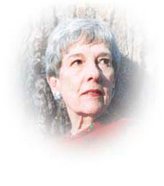Good Vibes
I was the networking session leader last Wednesday evening for Professional Writers of Prescott. The networking chair, Mary Ann had invited me. The PWP has an interesting format for their monthly meetings. At 6 p.m., those who wish, gather for a one-on-one session based on a particdular subject. Because some of the PWP members have visited a workshop or two in my home (where I now lead five workshops) a number were interested. I expected a half dozen; 13 showed up. When I'd finished regaling them with the highlights of more than 30 years leading and/or participating in home-based workshops and responding to questions, one of the regular members (who had visited mine) announced that she and friend had already secured space in the library for workshop meetings and were seeking signups. The chairman plans to visit one of mine here.
Sixty miles is a long drive from Prescott, so I doubt she will be a regular member but I do encourage writers everywhere to participate in in-home workshops. The large umbrella groups that bring in published professionals to speak to us all are great, but the workshops are where we perfect our own writing. In San Luis Obispo, the umbrella group ($30 per year membership) is called NightWriters and its great program chair brings in speakers to the monthly (except July & August) meetings. However, this organization also sponsors about a dozen home-based workshops that meet (average) every two weeks under the leadership of a volunteer.
I am so devoted to the idea of the value of workshops, I developed a how-to pamphlet a few years ago. It has eight pages of encouragement and protocols for such. The title is "Who? You!" Subtitled: "How to Create, Enjoy and Profit From a Writers' Critique Group." Since publishing that little pamphlet I have become wary of the word "critique" as some people shy away thinking they will be uncomfortable having their words "critiqued." Hence, I now refer to the groups as workshops. More on this subject in future blogs.
Contact me if you'd like to know more. Thanks for "listening."--Willma
Sixty miles is a long drive from Prescott, so I doubt she will be a regular member but I do encourage writers everywhere to participate in in-home workshops. The large umbrella groups that bring in published professionals to speak to us all are great, but the workshops are where we perfect our own writing. In San Luis Obispo, the umbrella group ($30 per year membership) is called NightWriters and its great program chair brings in speakers to the monthly (except July & August) meetings. However, this organization also sponsors about a dozen home-based workshops that meet (average) every two weeks under the leadership of a volunteer.
I am so devoted to the idea of the value of workshops, I developed a how-to pamphlet a few years ago. It has eight pages of encouragement and protocols for such. The title is "Who? You!" Subtitled: "How to Create, Enjoy and Profit From a Writers' Critique Group." Since publishing that little pamphlet I have become wary of the word "critique" as some people shy away thinking they will be uncomfortable having their words "critiqued." Hence, I now refer to the groups as workshops. More on this subject in future blogs.
Contact me if you'd like to know more. Thanks for "listening."--Willma



